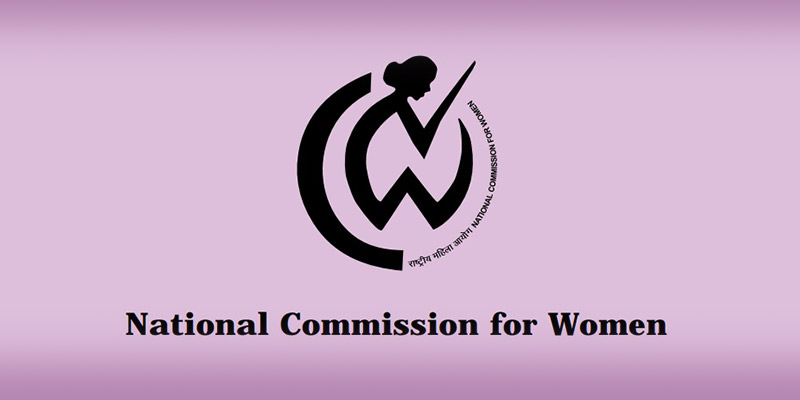The tragic Pahalgam terror attack in Jammu and Kashmir on April 22, 2025, claimed the life of Indian Navy officer Lieutenant Vinay Narwal. His wife, Himanshi Narwal, who had married him just a week before the attack, became the face of this national tragedy. However, instead of receiving only sympathy and support, Himanshi has been subjected to relentless online abuse and trolling, raising serious questions about the unchecked nature of online harassment in India.
The Incident and Aftermath

After the attack, Himanshi Narwal made a heartfelt public appeal for peace and communal harmony. She urged people not to target Muslims or Kashmiris in the aftermath of the attack, emphasizing that the nation should seek justice without hatred. Her statement was meant to calm tensions and promote unity in a time of grief. Yet, this appeal triggered a wave of vitriolic abuse on social media, primarily from right-wing supporters who accused her of disloyalty and questioned her intentions and character.
The Nature of Online Abuse Faced
Himanshi’s online harassment has included hateful comments questioning her religious loyalty, personal attacks, and ideological trolling. Some posts have been deeply abusive, suggesting that she is unworthy of sympathy because of her call for peace and secularism. This kind of targeted abuse not only adds to the trauma of a grieving widow but also highlights the toxic environment that can flourish unchecked on social media platforms.
Institutional Response

The National Commission for Women (NCW) has condemned the online trolling of Himanshi Narwal. The commission stated that while people may disagree with her views, such disagreement must be expressed respectfully and within constitutional limits. It emphasized that targeting a woman for her ideological expression or personal life is unacceptable. The NCW’s intervention is a crucial step in acknowledging the problem, but it also underscores the need for stronger mechanisms to prevent such abuse before it escalates.
Why Does Online Abuse Continue Unchecked?
जम्मू-कश्मीर के पहलगाम में हुए आतंकी हमले में देश के अनेक नागरिकों की हत्या कर दी गई थी। इस हमले में अन्य लोगों के साथ लेफ्टिनेंट विनय नरवाल जी से उनका धर्म पूछकर उन्हें गोली मार दी गई थी। इस आतंकी हमले से पूरा देश आहत व क्रोधित है।
लेफ्टिनेंट विनय नरवाल जी की मृत्यु के पश्चात…— NCW (@NCWIndia) May 4, 2025
Several factors contribute to the persistence of online abuse cases like Himanshi Narwal’s:
-
Anonymity and Lack of Accountability: Social media platforms often allow users to remain anonymous or use pseudonyms, which emboldens abusers to post hateful content without fear of consequences.
-
Slow Legal and Enforcement Response: Although India has laws like the Information Technology Act, 2000, and the Protection of Children from Sexual Offences (POCSO) Act to address cybercrimes, enforcement is often slow and inadequate. Law enforcement agencies are still building capacity to handle the volume and complexity of online abuse cases.
-
Limited Awareness and Reporting: Many victims and bystanders are unaware of how to report abuse effectively or lack trust in the system’s ability to protect them. This gap allows abuse to continue without significant pushback.
-
Polarized Social and Political Climate: In highly polarized environments, online abuse is sometimes weaponized as a tool for ideological battles, making it harder to control or moderate.
The Way Forward

Addressing online abuse requires a multi-pronged approach:
-
Stronger Legal Enforcement: Governments must enhance the capacity of law enforcement agencies to investigate and prosecute online abuse swiftly and effectively.
-
Platform Accountability: Social media companies need to implement more robust content moderation policies and provide easy-to-use reporting mechanisms to curb hate speech and abuse.
-
Public Awareness and Education: Educating users about respectful online behavior and the consequences of abuse can reduce toxic interactions.
-
Support for Victims: Providing psychological and legal support to victims of online abuse, especially vulnerable groups like women, is essential.
-
Promoting Civil Discourse: Encouraging respectful dialogue and condemning hate speech publicly can help create a safer online environment.

The online abuse faced by Himanshi Narwal after the Pahalgam terror attack tragedy is a stark reminder of the dark side of social media. While platforms offer a space for expression, they also expose individuals to unchecked harassment and trolling. Institutional interventions like those from the NCW are important, but they must be complemented by stronger laws, better enforcement, platform responsibility, and societal change. Only then can such abuse be curtailed, ensuring that victims like Himanshi Narwal receive the dignity and respect they deserve in their time of grief.
The question remains: How long can such abuse continue without effective checks? The answer lies in collective action from government, technology platforms, and society at large to make the digital space safer for everyone.
With inputs from agencies
Image Source: Multiple agencies
© Copyright 2025. All Rights Reserved Powered by Vygr Media.























